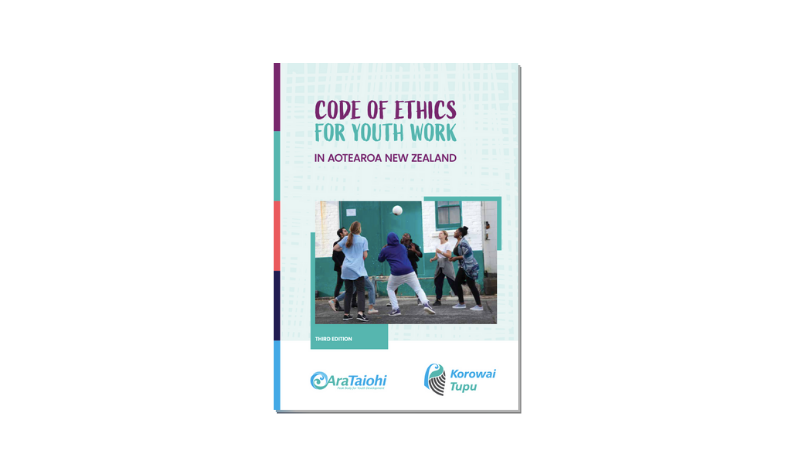With young people we prioritise whanaungatanga, taking time to build and sustain quality relationships.
Whanaungatanga is about relationship, kinship and a sense of whānau connection. It relates to all relationships in a young person’s life, including those in the digital space. When we prioritise whanaungatanga we invest in high trust relationships that are reciprocal, genuine, authentic, intentional and mana enhancing. Young people are supported with a strong foundation of belonging.
E kore te tōtara e tū noa i te pārae ēngari me tū i roto i te wao-nui-a-Tane
The tōtara does not stand alone in the field, but stands within the great forest of Tane
A chief with no supporters and followers stands alone, but one who works with the people will be a chief of substance.
(Mead & Grove, 2004)
14. Kia awatea | Transparency
14.1 Youth workers are open, honest and accountable to young people.
14.2 Where a programme and/or organisation operates from a particular kaupapa, this will be clearly stated.
14.3 Youth workers will fully inform young people (and their whānau, school or employer, where appropriate) of the Youth Work being offered.
14.4 Youth workers are transparent with their supervisors, organisation, colleagues and appropriate others.
14.5 Any koha or gifts exchanged will be handled with sensitivity, acknowledging the emotional and/or cultural significance, and discussed with the organisation. Giving and receiving of cash between youth workers and young people should be approached with caution.
15. Matatapu | Confidentiality
15.1 The young person’s ability to trust the youth worker is key to the Youth Work relationship.
15.2 Before confidences are shared, the youth worker will explain the boundaries of confidentiality, taking into account context, culture and organisational requirements.
15.3 Limits to confidentiality, which may lead to disclosure, apply when:
- There is concern for the safety of the young person or someone else
- There is an emergency situation
- It is required by legislation or the courts
- The young person is unable to consent.
15.4 When youth workers need to pass on confidential information, they will provide only the information necessary to the appropriate people.
15.5 Youth workers will obtain the permission of young people before disclosing information. Where this is not possible, youth workers will inform young people in a timely manner.
15.6 Youth workers comply with the Privacy Act 1993, and in particular will ensure collection, storage, access, correction, use and disclosure of information is dealt with in accordance with this Act.
16. Ngā tauārai | Boundaries
16.1 Youth workers create and maintain culturally and age-appropriate physical, emotional, sexual, spiritual and online boundaries.
16.2 The purpose of boundaries is to:
- ensure a safe space for all
- prevent unhealthy, dependent relationships
- prevent favouritism, rescuing or corruption
- enhance the mana of the relationship.
16.3 Youth workers have a responsibility to discuss boundary issues with their support network, including within supervision.
16.4 Youth workers will support one another to maintain effective boundaries and, where needed, hold one another to account.
16.5 The relational nature of Youth Work makes it a high-risk practice. The safety and wellbeing of young people is paramount.
16.6 Youth workers are aware of compromising thoughts or situations and ensure that strategies are in place to help them deal safely with these situations.
16.7 Sexual acts and romantic relationships between youth workers and any young person they are in a Youth Work relationship with are never acceptable.
16.8 Once the Youth Work relationship has finished, youth workers will not enter into a romantic and/or sexual relationship until the power relationship is determined to no longer be of influence, if this is ever possible. This decision will be made in consultation with their manager and extended support network, including supervision.
16.9 Youth workers do not engage in sexual harassment; nor will they tolerate sexual harassment of others (sexual harassment is defined in the Human Rights Act 1993).
17. Kia mataara ki ngā ripa tauārai | Knowing your limits
17.1 Youth workers understand their role and responsibilities, and that the Youth Work relationship has limitations.
17.2 Youth workers ensure that young people understand the limits and boundaries of the Youth Work relationship.
17.3 Youth workers are conscious of their own skills and competencies, and carefully consider whether they can take on a particular role or task.
17.4 Youth workers seek advice or refer-on where this is best for the young person.
17.5 Referrals are followed up a short time after they are made, and/or received.
NextManaakitanga